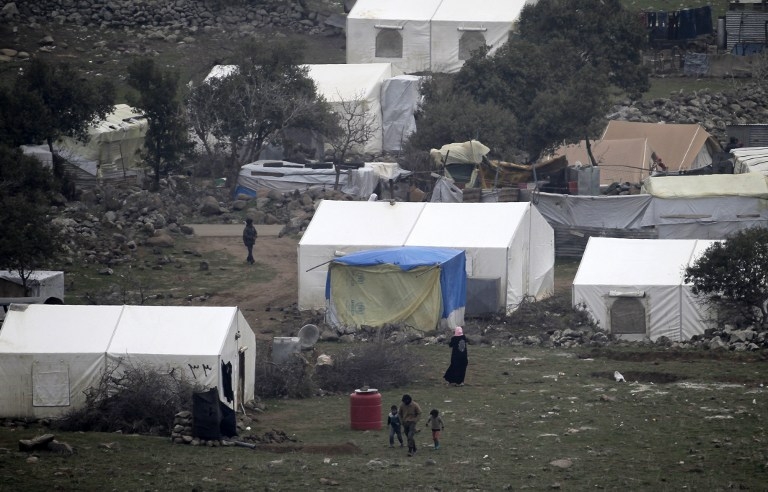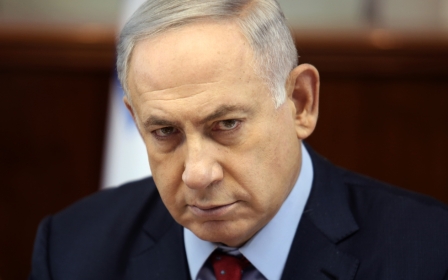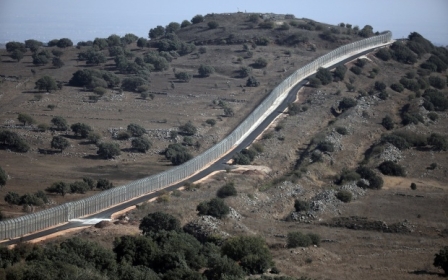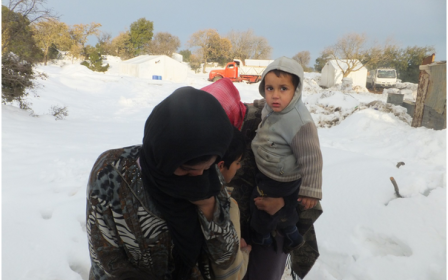Israeli cabinet meeting in Golan 'irresponsible provocation': Syria envoy

Syria's envoy to the UN on Monday denounced an unprecedented Israeli cabinet meeting held in the Golan Heights on Sunday as "provocative".
"It is an irresponsible provocation committed by Benjamin Netanyahu, the prime minister of the Israeli occupation force," Bashar al-Jaafari said of Sunday's cabinet meeting, which was the first ever to be held in the territory seized from Syria in 1967.
Jaafari, who is also the head of Syria's delegation at peace talks that had been scheduled to resume on Monday in Geneva, said his government would send letters of protest to the UN Secretary General's office and the Security Council.
The letters, he told a Geneva news conference, urge the Security Council and the Secretary General "to condemn immediately the (Israeli Golan cabinet) meeting and demand that it is not repeated".
Jaafari said that he told the UN envoy to Syria, Staffan de Mistura, that "the Syrian Arab Republic has the right to take back the Golan.... by all the legal means guaranteed under the UN charter".
Netanyahu, who chaired the meeting, said the Israeli-annexed Golan Heights would "forever" remain in his country's hands.
"The Golan Heights will remain in the hands of Israel forever," he said at the start of the cabinet meeting. "Israel will never withdraw from the Golan Heights."
Israel seized 1,200 sq km of the Golan Heights from Syria in the Six-Day War of 1967 and later annexed it in a move which the international community has never recognised.Israeli media have reported that Netanyahu planned the cabinet meeting as a statement amid fears Israel could come under pressure to return the Golan as part of a future peace deal for its war-torn neighbour.
Middle East Eye propose une couverture et une analyse indépendantes et incomparables du Moyen-Orient, de l’Afrique du Nord et d’autres régions du monde. Pour en savoir plus sur la reprise de ce contenu et les frais qui s’appliquent, veuillez remplir ce formulaire [en anglais]. Pour en savoir plus sur MEE, cliquez ici [en anglais].




